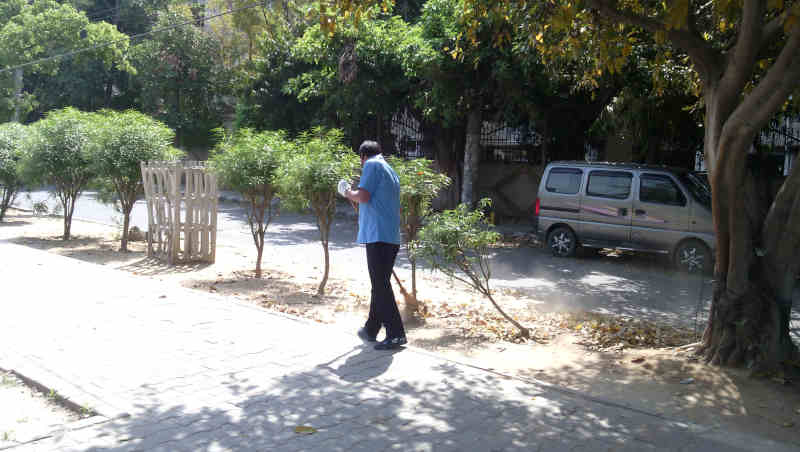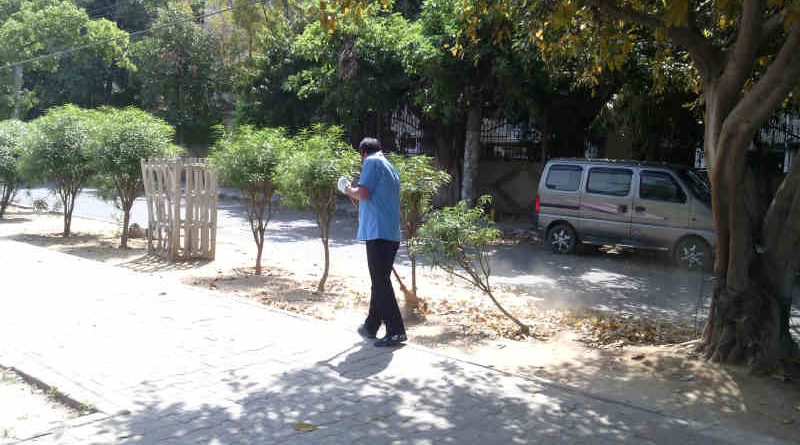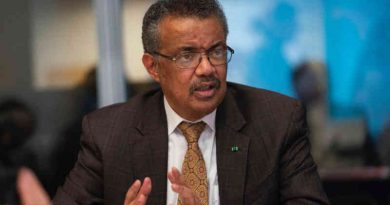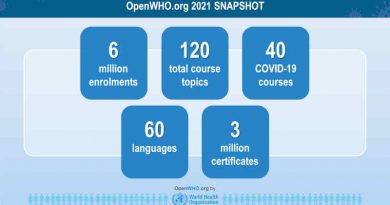Vaccinated = Unvaccinated. Covid Cases Rising Again in Third Wave of Pandemic

The other reasons for the spike in Covid-19 cases and probable deaths are believed to be the diminishing effect of vaccines after a few months of vaccination and reckless lifting of restrictions in most parts of the world.
By Rakesh Raman
After a brief lull of a couple of months in the Covid-19 contagion, multiple reports suggest that Covid is hitting back with more vengeance. Worse, the vaccines are not effective to protect against the virus – particularly the uncontrollable Delta variant.
New studies reveal that people vaccinated against Covid-19 are just as likely to spread the Delta variant of the virus to others in their surroundings as those who have not been vaccinated. In a year-long study of people in the UK with modest Covid-19, scientists have found that their peak viral load was similar regardless of vaccination status.
According to a paper published on October 28 in The Lancet Infectious Diseases medical journal, the analysis also found that 25% of vaccinated household contacts still contracted the disease from an index case, while 38% of unvaccinated individuals became infected.
According to The Lancet study, the SARS-CoV-2 Delta (B.1.617.2) variant is highly transmissible and spreading globally, including in populations with high vaccination rates. The analysts aimed to investigate transmission and viral load kinetics in vaccinated and unvaccinated individuals with mild Delta variant infection in the community.
The other reasons for the spike in Covid-19 cases and probable deaths are believed to be the diminishing effect of vaccines after a few months of vaccination and reckless lifting of restrictions in most parts of the world.
Although WHO and other health agencies are recommending booster doses even after full vaccination, the efficacy of boosters is not yet established. Also, data reveals that more than 60% of the world population is not yet fully vaccinated. Therefore, booster doses cannot be used on such a large population which is still unvaccinated.
As the confusion around vaccination programs persists, the European Centre for Disease Prevention and Control (ECDC) has warned that the Delta variant, first identified in India, can cause serious damage in the European Union (EU) region.
Based on the estimated transmission advantage of the Delta variant and using modelling forecasts, 70% of new SARS-CoV-2 infections were projected to be due to this variant in the EU/EEA (European Economic Area) by early August and 90% of infections by the end of August.
The EU/EEA countries which have not yet achieved high enough Covid-19 vaccination and planning to relax non-pharmaceutical interventions, run a high risk of experiencing a significant surge of cases, hospitalisations, and mortality from now until the end of November. This is indicated by a new SARS-CoV-2 Rapid Risk Assessment published on September 30 by the ECDC.
The report also anticipates that greater proportions of SARS-CoV-2 cases amongst children will be reported in the coming months. Interventions such as physical distancing that prevent crowding as well as hygiene and improved ventilation will remain essential to prevent transmission in school settings.
Since the vaccination programs in different countries are either slow or haphazard, and the effectiveness of vaccines is under doubt, many countries are again reporting a surge in Covid cases and deaths.
For example, China placed a third city under lockdown on October 28 to tackle Covid-19 spike, with around six million people now under orders to stay home as Beijing plans to contain the contagion before the upcoming Winter Olympics.
Singapore is experiencing an unusual rise in infections as the city-state recorded an all-time high of 5,324 new cases of the virus within 24 hours. With 10 new deaths, the toll has risen to 349. Singapore’s Ministry of Health (MOH) said in a statement on October 27 that the infection numbers are unusually high.
While Brazil has not been able to deal with Covid calamity, a Senate panel in Brazil has backed a report recommending President Jair Bolsonaro faces charges including crimes against humanity for his lackluster response to the Covid-19 pandemic.
Similarly, India’s prime minister (PM) Narendra Modi was also accused of crimes against humanity for his mishandling of the Covid situation. But no investigation took place against him because Indian courts are weak, political opposition is extinct, and parliament has lost its purpose.
Amid the detection of a new Covid-19 variant, it is learnt that the Karnataka Government in India is planning to again impose lockdown in the state. As there are reports of rising cases of the new variant in different parts of India, people are concerned about the emergence of the third wave of the pandemic.
While Covid infections are spreading again across the world, India faces a greater risk because of the ongoing festival season when people crowd the streets and crumbling healthcare infrastructure in the country. There are again reports of new Covid cases and deaths in India.
Now it appears that WHO and other health organizations of the world have failed to deal with Covid-19 and other virus variants. As a result, the world is back to square one.
As of October 29, the total number of Covid cases in the world were 219 million with 4.5 million deaths. And only 38% of the world population is fully vaccinated.
By Rakesh Raman, who is a national award-winning journalist and social activist. He is the founder of a humanitarian organization RMN Foundation which is working in diverse areas to help the disadvantaged and distressed people in the society.





